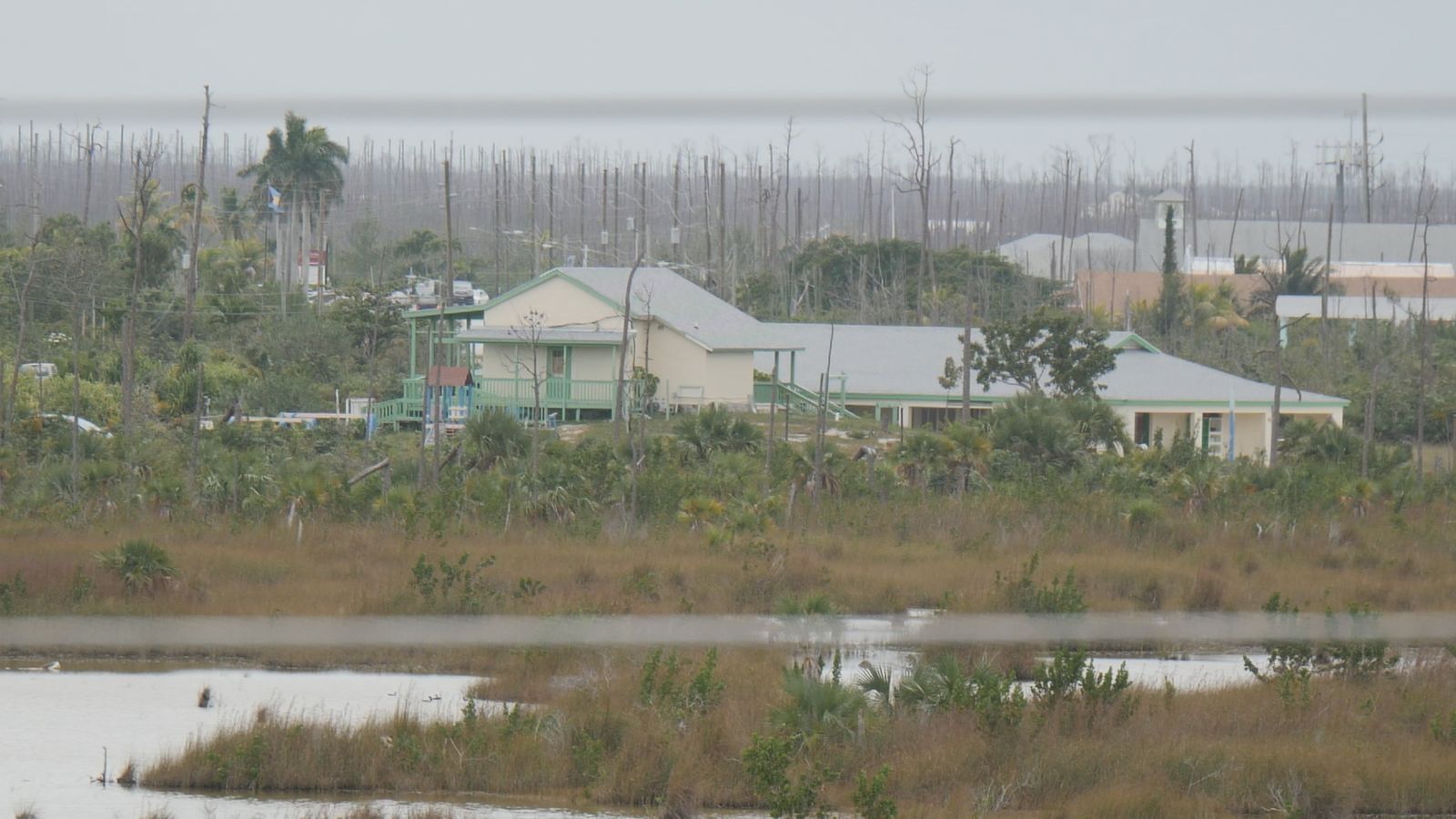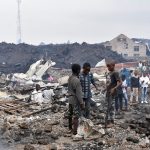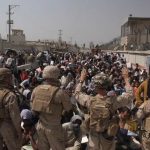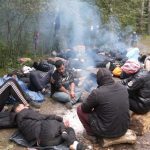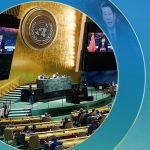Beyond Glasgow, beyond the ambition and the pledges, and the conclusions, the forests of Great Abaco have gone.
The storm, Dorian, was two years ago, and yet for mile after mile, this Bahamian island still looks like a wasteland.
Just the trunks of the trees are left. Some standing, others bent double and the communities around have hardly rebuilt.
Our guide for a tour around what should be paradise is 18-year-old Zander Gardiner.
He looks much older. The Bahamas life is not the easy one we may imagine.
He recalls the night the hurricane swept into his home.
“It was very powerful. It’s something that I never want to experience again… it’s a long journey but we will make it,” he says.
COP26: Bahamas PM says climate summit has ‘no teeth’ and Boris Johnson’s language doesn’t ‘convey seriousness’ of global warming crisis
Three people rescued after surviving on island for 33 days by eating coconuts and rats
Hurricane Dorian: Florida bar pulls cash from walls to donate thousands to Bahamas
Dorian was a category five hurricane and it sat over Great Abaco for hours.
“That used to be the school… and that was the church…” Zander tells me, showing us around an island that puts the COP conference, his future, in context.
The money to rebuild from the Bahamas’ most powerful storm on record never came.
In Glasgow, the jargon is “loss and damage” and “adaptation finance”, a push by island nations like this to demand the big polluting countries pay for the consequences here.
But the text agreed on is disappointing, say the group of islands nations who’ve pushed for climate justice since 1991.
There are mechanisms, even a pledge, to set up a dedicated agency, but no firm commitments or talk of budgets.
Great Abaco’s main town, Marsh Harbour, feels forgotten; frozen in that moment two years ago.
Next to the road, a huge boat lies marooned. We are nearly a kilometre inland.
They are images not of the power of nature but the consequence of our impact on it and our inability to protect against it.
Beyond the banging of a slow rebuild which you hear around the town, everyone here wonders what the future holds; if there is a future for them.
Because in the Bahamas, like all of these small island developing states, the stuff the scientists warn about is happening already.
And it’s not just the destruction, how to fix it and how to mitigate against the next storm – it’s the displacement too.
In a nearby village, a series of white pods act as temporary homes for all those who lost theirs.
“I know I won’t be here,” mother of five Candy tells me when I asked what she’ll do when the next storm comes.
“I gotta go. Go somewhere else… where the weather is better.”
What’s clear is that today’s internally displaced are tomorrow’s refugees. They become another nation’s burden.
A few pods down from Candy and her family, 21-year-old Dominique invites us into her temporary home.
It’s lunchtime and mum Gardenia is cooking deep-fried crab and tacos.
“Any rain or thunder that they have, my nephews, they go back to thinking about it,” Dominique says, reflecting on Dorian.
“We’re just trying to get back in some housing that’s gonna hopefully protect us if another hurricane was to pass,” she says.
Chatting to Dominique, it’s clear she has no time to think about climate science or the culprits because she is living it right now. For her, what matters is her family’s survival and existence.
“… and that’s sad to say but that’s the honest truth,” she says.
“But now that we are talking about climate change and you are telling me about the conference, trust me, I am definitely going to look that up.”
The weather changes fast here. It’s hurricane season and they are holding their breath.
Up the coast, is the fishing community of Coopers Town.
A break in the rain is a chance for a chat with local fire chief Kirk Murray, a man clearly scared by what he experienced two years ago but not defeated.
“If we give up now all hope is lost,” Kirk says.
“If we come together as countries, as neighbouring counties we can all fight together. Because if they cough, we catch the cold, so if we do this together, nothing can stop us.”
Yet the alarming thing is that regardless of the deal; whether or not countries stick to their pledges, it’s probably too late here.
Even the more modest predictions for temperature rises would increase sea levels by nearly a metre over the next 100 years and would put this whole island community underwater.
But firefighter Kirk is determined.
“If climate change comes back, we come back too. If we give up now, all hope is lost.”
